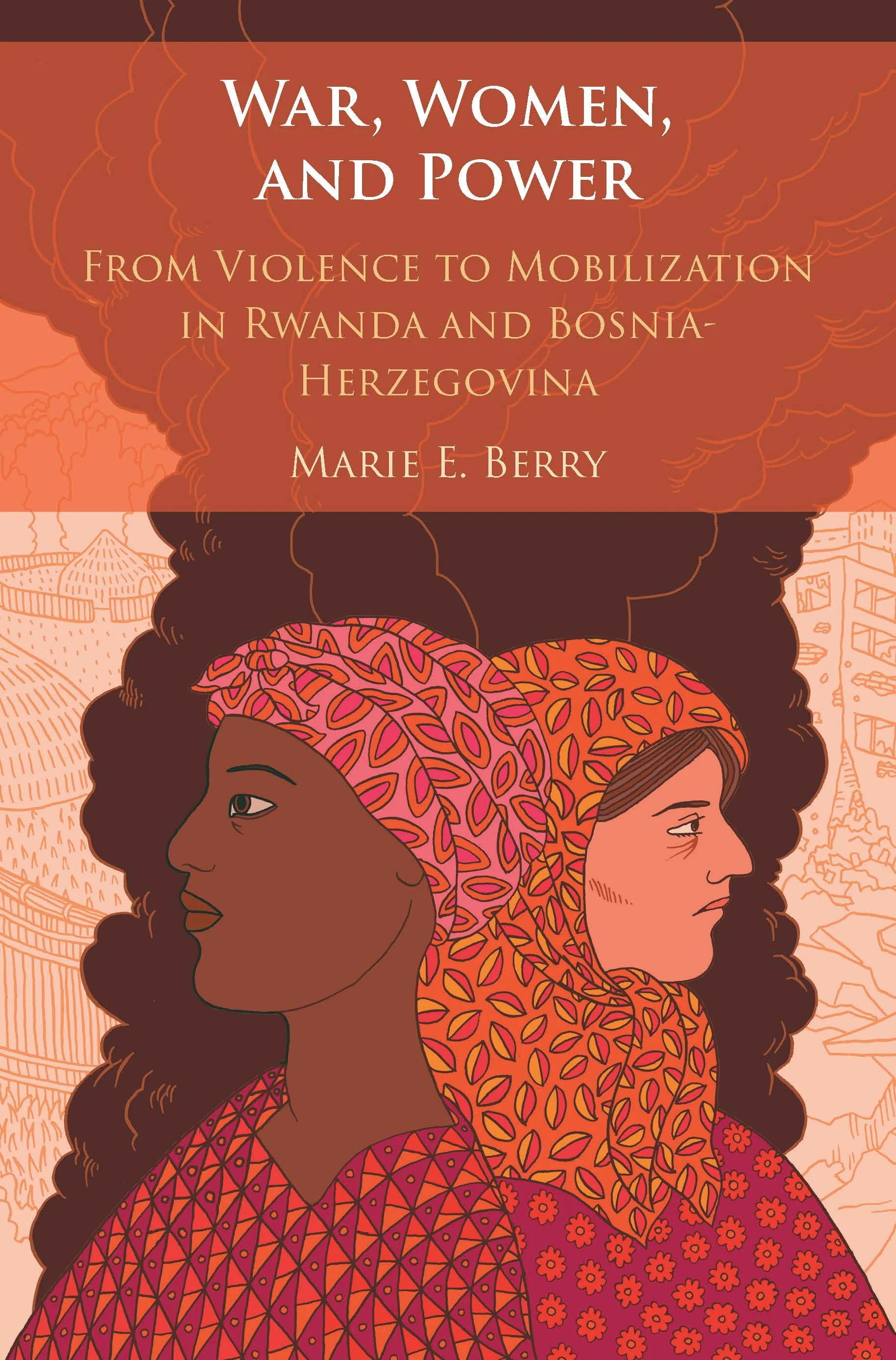Media:
Reviewed in American Journal of Sociology, Perspectives on Politics, Mobilization, International Affairs, Africa: A Journal of the International African Institute, and the Wiener Library Blog.
The International Affairs Blog said nice things about the book here and here
Featured in the Democracy in Africa Book Club
Listen to the New Books Sociology podcast interview with Sarah E. Patterson
Read an interview at Our Secure Future: Women Make the Difference
“For every bad thing that happens, there can always be one good consequence. One of the positive effects of the genocide was that we could not see what was happening and just stay there, so we were faced with an incredible choice, and we had to make the decision to do something…I entered politics, because I wanted to do something to help women”
“At the beginning of the war we were just housewives and we were raising kids and our husbands were in charge of providing food for us….[Today] every powerful person that comes to Bosnia wants to talk with us.”
War, Women, and Power: From Violence to Mobilization in Rwanda and Bosnia-Herzegovina (Cambridge University Press 2018)
*Winner of 2019 ASA Peace, War, and Social Conflict Best Book Award*
*Winner of 2019 ASA Sociology of Development Best Book Award (honorable mention)*
*Winner of 2019 ESS Mirra Komarovsky Book Award (honorable mention)*
From www.cambridge.org/9781108416184:
Rwanda and Bosnia both experienced mass violence in the early 1990s. Less than ten years later, Rwandans surprisingly elected the world's highest level of women to parliament. In Bosnia, women launched thousands of community organizations that became spaces for informal political participation. The political mobilization of women in both countries complicates the popular image of women as merely the victims and spoils of war. Through a close examination of these cases, Marie E. Berry unpacks the puzzling relationship between war and women's political mobilization. Drawing from over 260 interviews with women in both countries, she argues that war can reconfigure gendered power relations by precipitating demographic, economic, and cultural shifts. In the aftermath, however, many of the gains women made were set back. This book offers an entirely new view of women and war and includes concrete suggestions for policy makers, development organizations, and activists supporting women's rights.
Reviews
‘Berry's War, Women and Power is a true tour de force. We know that periods of war are often followed by increases in women's political participation, but prior to this book, we didn't understand why. Combining careful historical analyses, with more than 260 interviews with political actors in Rwanda and Bosnia, Berry traces the process by which the destruction of war pushed women to develop new network ties, new community organizations, and new collective humanitarian projects, which in turn institutionalized new forms of women's political participation. Sadly, however, she also finds that these gains are relatively short lived. More than just a patriarchal backlash, Berry demonstrates how well-meaning international humanitarian assistance had the surprising and unanticipated consequence of flattening out women's nascent political gains. Engaging, heart wrenching, and original, War, Women and Power is a must read for everyone interested in gender, war, and the necessity of building equitable post-war societies.'
Jocelyn Viterna - Harvard University, Massachusetts
‘This fascinating and important book examines the processes through which war facilitates women's grassroots mobilization through demographic, economic, and cultural transformations. It makes an original contribution to the study of gender and conflict. Moreover, it is well-written and nuanced, backed by strong evidence, drawing on a rich body of fieldwork in Rwanda and Bosnia.'
Aili Mari Tripp - Wangari Maathai Professor of Political Science and Gender and Women's Studies, University of Wisconsin, Madison
‘In this exceptional and often surprising book, Marie E. Berry shows how in disrupting power and gender relations, wars in Rwanda and Bosnia-Herzegovina created political and cultural openings that allowed women to mobilize in significant and surprising ways. An altogether extraordinary contribution to the literatures on war, contentious politics, and women's political participation.'
Doug McAdam - Ray Lyman Wilbur Professor of Sociology, Stanford University
‘Can something good come of war? Looking deeply into the processes involved in the 1990s civil wars of Rwanda and Bosnia- Herzegovina, Marie E. Berry faces up to an uncomfortable contradiction. A period of death and destruction may be transformative for women, bringing them increased opportunities and political mobilization, both in the community and in the postwar power structures. Stopping to explore, rather than brush aside, such contradiction when you meet it, as the wisest social analysts know, is highly productive. Berry's unflinching investigation teaches us a lot about patriarchal gender power-relations – which turn out to have as much resilience as do women when it comes to surviving war.'
Cynthia Cockburn - Centre for the Study of Women and Gender, University of Warwick, and City University London
‘Marie E. Berry's book is a passionately engaged, yet scientifically embedded account of how women came to be politically empowered – yet ultimately remained vulnerable – activists and political actors in two post-violence countries. Her paired comparison shows how political opportunities often arose in the midst of social disorganization, as women turned the search for survival into the creation of new roles and responsibilities. Her well-crafted narratives shine a new light on the relationships among gender, war, and political mobilization.'
Sidney Tarrow - Author of Power in Movement
